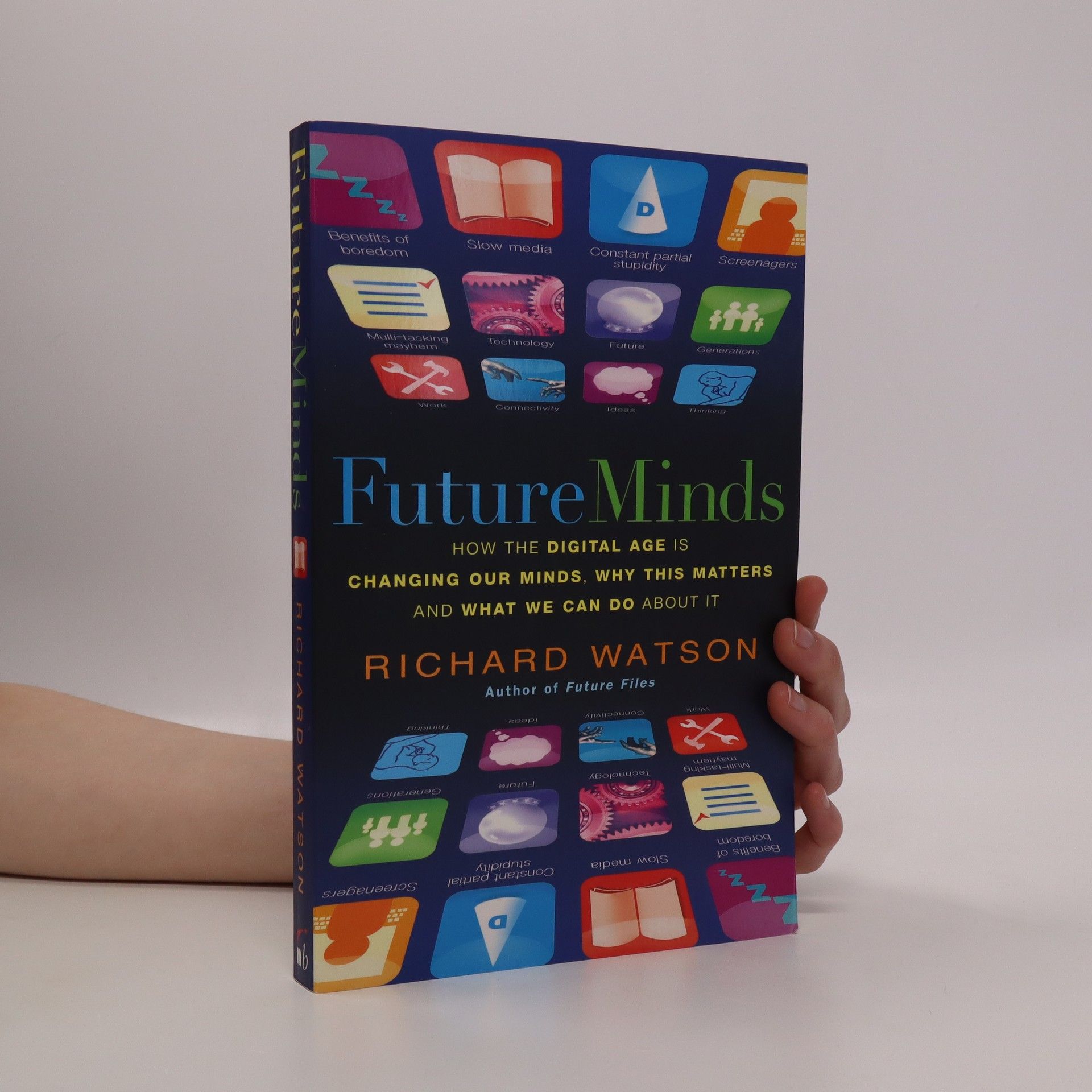The Children's Laureate and best-selling author of The Gruffalo, Julia Donaldson, has carefully created the Songbirds Phonics series to support children who are learning to read. It builds children's confidence through a clear phonics development with gradual progression. This Stage 6 Songbirds collection contains 6 exciting phonics stories in 1!
Richard A. Watson Libros
Richard Watson es un agudo observador del futuro, que explora las tendencias emergentes y los avances tecnológicos. Su trabajo impulsa a los lectores a considerar cómo podemos dar forma activamente a futuros más deseables. A través de sus perspicaces análisis y visiones, alienta a las organizaciones a desarrollar escenarios de futuro convincentes y a trabajar para su realización. El enfoque de Watson se basa en la creencia en nuestra responsabilidad colectiva de diseñar y construir proactivamente el mundo de mañana.







This exciting book provides young readers an inside look at the Detroit Red Wings, from the team's formation up to the present day. The book includes a table of contents, team facts, additional resources links, a glossary, and an index. This Press Box Books title is aligned to a reading level of grade 4 and an interest level of grades 4-7.
Future minds: How the digital age is changing our minds, why this matters, and what we can do about it
- 213 páginas
- 8 horas de lectura
This is for anyone who's curious about rethinking their thinking or unleashing the extraordinary potential of the human mind.
The Future: 50 Ideas You Really Need to Know
- 208 páginas
- 8 horas de lectura
A dynamic insight into how science will shape human destiny over the coming century.
Future Files
- 324 páginas
- 12 horas de lectura
Wlliam Gladwell meets Alvin Toffler in this lively, provocative and witty look at our possible futures. Filled with provocative forecasts about how the world might change in the next half century, Future Files examines emerging patterns and developments in society, technology, economy, and business, and makes educated speculations as to where they might take us. It is indispensable to business analysts, strategists and organisations who need to stay ahead of the game as well as providing rich and fascinating material for dinner party conversations. Will machines become more intelligent than humans, and even be able to 'read' our minds? Will food in our fridge speak to each other using radio waves, then come up with options for tonight's menu? Is there a looming environmental crisis where Planet Earth is doomed? Would you like a pill that improves your memory? ...Or a moistened tissue that could erase a bad day? Would you feel safer if your front door could tell you whether the person knocking is not a stranger? These are just some of the provocative forecasts about how the world might change in the next half century which Richard Watson explores in "Future Files".
Future files : 5 trends that will shape the next 50 years
- 306 páginas
- 11 horas de lectura
Future Files is filled with provocative forecasts about how the world might change in the next half century. It examines emerging trends and developments in society, technology, economy, and business, and makes educated speculations as to where they might take us.
A Biblical And Theological Dictionary (Volume II)
In Two Volumes, Vol. II. (J - Z). Explanatory Of The History, Manners, And Customs Of The Jews, And Neighbouring Nations. With An Account Of The Most Remarkable Places And Persons Mentioned In Sacred Scri
- 894 páginas
- 32 horas de lectura
This edition features a professional typeset, ensuring a clearer and more visually appealing reading experience compared to scanned versions available elsewhere. It emphasizes quality in presentation, catering to readers who appreciate well-formatted text.
This exciting book provides young readers an inside look at the Tampa Bay Lightning, from the team's formation up to the present day. The book includes a table of contents, team facts, additional resources links, a glossary, and an index. This Press Box Books title is aligned to a reading level of grade 4 and an interest level of grades 4-7.
This exciting book provides young readers an inside look at the Montreal Canadiens, from the team's formation up to the present day. The book includes a table of contents, team facts, additional resources links, a glossary, and an index. This Press Box Books title is aligned to a reading level of grade 4 and an interest level of grades 4-7.